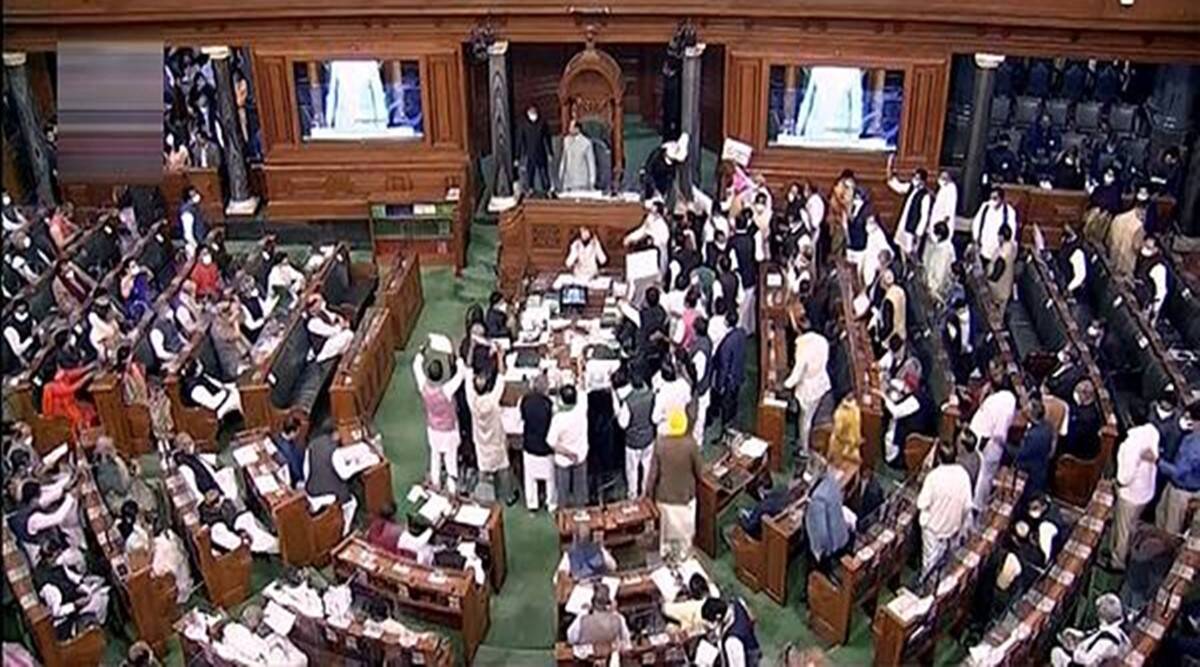The Centre on Tuesday introduced the Government of National Capital Territory of Delhi (Amendment) Bill, 2023 in the Lok Sabha amidst opposition from several political parties. Minister of State for Home Affairs Nityanand Rai presented the Bill, which was criticised by the Opposition. Congress leader Adhir Ranjan Chowdhury called it a threat to cooperative federalism and accused the government of trying to weaken the country’s federal structure.
Other members of the Opposition, including N K Premachandran of the Revolutionary Socialist Party (RSP) said “I am vehemently opposed to the Bill.”, Asaduddin Owaisi of All India Majlis-e-Ittehadul Muslimeen (AIMIM), Sougata Ray of Trinamool Congress (TMC), Gaurav Gogoi of Indian National Congress, Shashi Tharoor of Congress, T R Baalu of DMK, and Pinaki Misra of Biju Janata Dal (BJD), also opposed the Bill. Owaisi argued that the House lacked legislative competence, and Ray described it as an autocratic move.
However, Parliamentary Affairs Minister Pralhad Joshi defended the Bill, asserting that Parliament was fully competent to pass it. Home Minister Amit Shah said the Constitution empowers Parliament to make laws on the NCT of Delhi. All objections to the introduction of the Bill are political, Shah said, requesting the House to grant approval for its introduction.
The Bill aims to replace the National Capital Territory of Delhi (Amendment) Ordinance, 2023, which was promulgated on May 19, 2023, after the Supreme Court’s judgment granting more powers to the Delhi government in the matter of services. The ordinance establishes the National Capital Civil Service Authority, with the Chief Minister of Delhi as the ex officio chairperson of the authority. The House was urged to approve the introduction of the Bill.
The ordinance provides for the constitution of the National Capital Civil Service Authority, with the Chief Minister of Delhi as the ex officio chairperson of the authority.
However, the Aam Aadmi Party faced a significant setback in its battle against the Delhi services bill today, as the Biju Janata Dal led by Odisha Chief Minister Naveen Patnaik decided to support the Centre. With the BJD’s backing, the bill is expected to easily surpass the halfway mark in Parliament. Additionally, the BJD will also oppose the no-confidence motion brought forward by the opposition bloc INDIA against the BJP-led Centre.
This decision by Odisha’s ruling party, which holds nine seats in the Rajya Sabha, will be instrumental in helping the government achieve a majority in the upper house. The BJP-led NDA does not possess a full majority on its own in the Rajya Sabha.
Furthermore, the YSR Congress Party led by Jagan Reddy has also declared its support for the crucial bill. With nine members in the Rajya Sabha and 22 in the Lok Sabha, their backing strengthens the government’s position on the legislation.
Transfer & posting of officers
The GNCTD Bill aims to replace the ordinance on the creation of an authority for transfer and posting of Group A officers in Delhi has brought to light the contentious practice of promulgating ordinances to circumvent critical judicial pronouncements.
Key Features of the GNCTD Bill 2023
National Capital Civil Services Authority: The Bill establishes the National Capital Civil Services Authority to provide recommendations to the Lieutenant Governor of Delhi (LG) on specific service-related matters. These include transfers, postings, vigilance, disciplinary proceedings, and prosecution sanctions for Group A of All India Services (except Indian Police Service) and DANICS.
Powers of the Lieutenant Governor: The Bill grants discretionary powers to the LG in specific circumstances, such as matters outside the legislative competence of the Delhi Legislative Assembly that have been delegated to the LG or when he is required to act in his discretion or perform judicial or quasi-judicial functions. The LG’s role is further expanded to include approving or returning recommendations of the Authority for reconsideration. In cases of a difference of opinion between the LG and the Authority, the LG’s decision will be final.
Composition of the Authority: The Authority will consist of the Chief Minister of Delhi as the Chairperson, the Principal Home Secretary of the Delhi government as the Member Secretary, and the Chief Secretary of the Delhi government as a member. Both the Principal Home Secretary and Chief Secretary will be appointed by the central government. Decisions of the Authority will be based on a majority vote, with a quorum of two members for a meeting.























